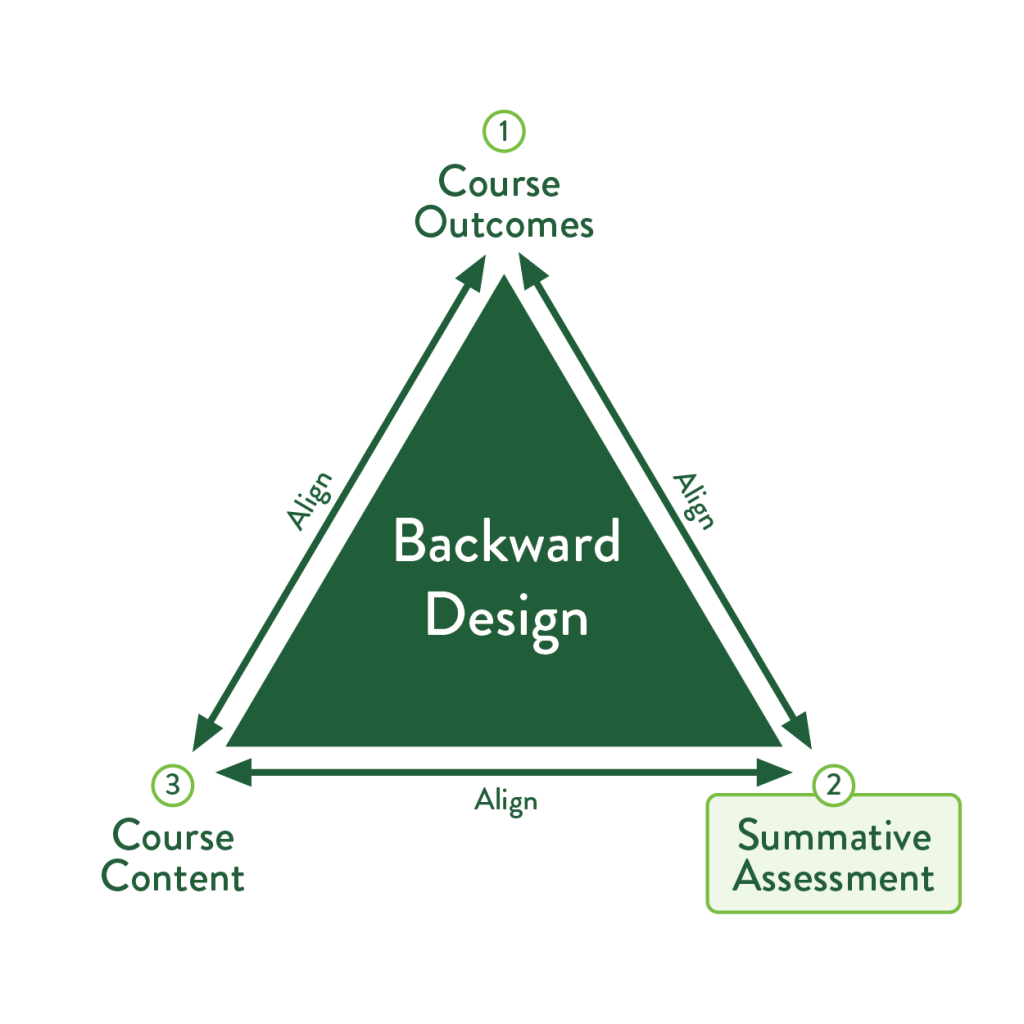6 Summative Assessments
 Summative assessments are always formal. They should be planned in advance and should be aligned to one or more Course Outcomes. In the Foundations of Course Design experience, for example, the Course Design Plan is your summative assessment.
Summative assessments are always formal. They should be planned in advance and should be aligned to one or more Course Outcomes. In the Foundations of Course Design experience, for example, the Course Design Plan is your summative assessment.
Summative assessments are designed to measure and summarize a student’s overall performance in relation to the learning outcomes at the end of a specific period, such as a term or a semester. They are typically used for grading and making decisions about a student’s progress or readiness to move on to the next level.
Examples of summative assessments in higher education include the following:
- Final Exams: In a biology course, a comprehensive final exam is a summative assessment evaluating students’ knowledge of the entire semester’s content.
- Midterm Exams: A midterm exam is a summative assessment evaluating students’ knowledge of the first term’s content.
- Term Papers: In an English literature class, a term paper submitted at the end of the term is a summative assessment that assesses students’ research, analysis, and writing skills.
- Capstone Projects: In an engineering program, a capstone project serves as a summative assessment to demonstrate the students’ mastery of their discipline through a culminating project.
Exercises
If you would like to complete your Course Design Plan as you go, your assigned instructional designer can help you do so as you work through each part of the Foundations of Course Design experience. Otherwise, you can complete the plan at the end. The following link contains instructions for the second section of the Course Design Plan:
